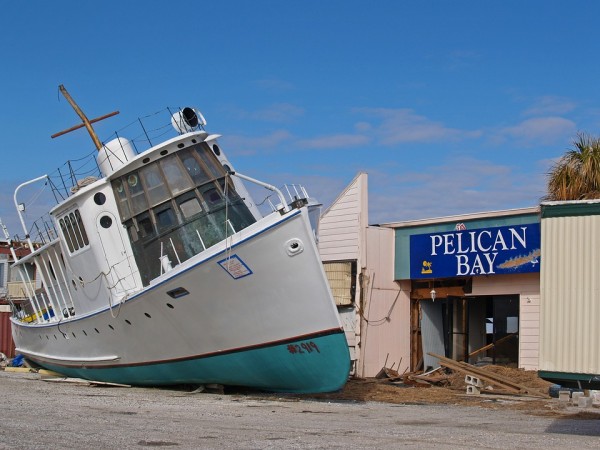
Every marina has different rules for what must be done by boat owners in the face of an approaching hurricane. In the wake of Katrina and Wilma, states are beginning to pass laws requiring boat owners to prepare their boats in certain ways. In light of all this information, some of it conflicting, what are the most important things a boat owner must know to protect themselves and their boat during a hurricane?
There are two basic rules that most experts agree offer the most important advice. First, plan ahead for what you will do when a hurricane approaches. That means checking your contract with your marina to see what they require and checking with your state for any additional regulations. You should also check with your boat insurance company to see if they have regulations that may affect your coverage. Conduct a dry run during the off-season to be sure you fully understand how much time is necessary to move or prepare your boat.
Second, under no circumstances is it safe to attempt to ride out a hurricane in your boat. There is a persistent myth that being on a boat in open water is safer than being on land during a hurricane, but the facts do not bear it out. Hurricane winds and tides can carry boats far inland or even sink them. Your boat is not worth risking your life.
Moving your boat is always the best way to prevent damage if at all possible. However, this requires arranging for inland storage space well ahead of time. Also, many boat owners are not aware that drawbridges are often locked down before a hurricane to facilitate the evacuation of people from low-lying areas. This increases the importance of moving your boat as soon as a hurricane watch is issued for your area.
Some areas have flotilla plans in place in order to move the maximum number of boats in the shortest time. Your local emergency management office will issue flotilla information in advance of a hurricane. If you are planning on joining a flotilla, be sure that your boat is properly maintained and fueled.
If moving your boat is not a possibility there are some simple things you can do to minimize damage. Remove all portable items from your boat such as electronics, antennas, dinghies, sun shades, oars or any other item that may blow around and cause damage. Be sure that any remaining items are securely lashed down. Obtain rope and other supplies to secure your boat well in advance as these items may be in short supply before a storm.